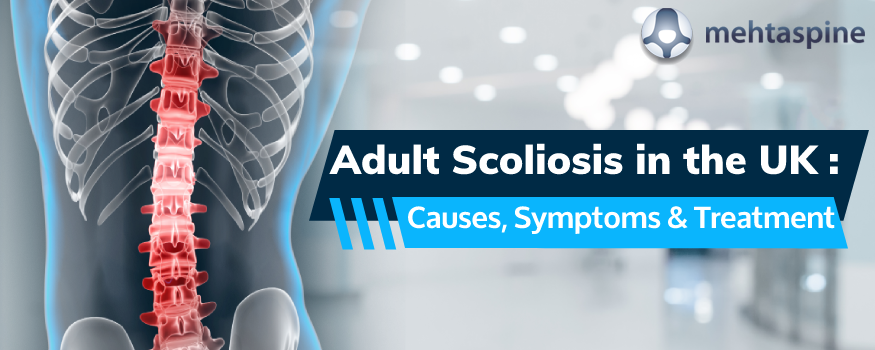Adult Scoliosis in the UK: Causes, Symptoms, & Treatment:
Though Scoliosis is most commonly identified in children and teenagers, it must be noted that even adults may develop Scoliosis. The reasons for adult scoliosis may vary. While in few cases patient can be diagnosed with scoliosis due to degenerative changes in the spine or osteoporosis, in other cases it can be due to the progression of the inherent spinal curve in youth i.e. undiscovered scoliosis.
Though adult scoliosis is not as common as scoliosis in children and teenagers its prevalence in the UK is well documented. Adult scoliosis just like any other cases can show up in the cervical, thoracic and lumbar spine. But the majority of the patient may not even know about the condition until painful symptoms show up, at which point more aggressive scoliosis treatment options are needed to treat scoliosis. So read on to know about the symptoms and treatment options for adult scoliosis in the UK:
Symptoms of Adult Scoliosis:
As said earlier, in the majority of the cases the adults may not even notice the curve unless the symptom like pain or visible bulge at the location of this pain shows up. Loss of height and uneven alignment of hips and pelvis are other common symptoms often noticed at our clinic by Children and Adult Spinal Surgeon Mr Jwalant S. Mehta. Fatigue, shortness of breath, feeling of fullness when the stomach is empty are some of the other less common but prevalent symptoms in adult scoliosis patients.
Diagnosis and Treatment for Adult Scoliosis:
A spine specialist or spinal deformity surgeon in UK evaluates the patient for scoliosis using physical; examination, X-ray or low dose EOS imaging. Usually, a patient is diagnosed with scoliosis if the spinal curve is greater than 10 degrees, but by the time an adult seeks treatment it is common to notice at least a 20-degree spinal curve, so worry not.
After the patent is diagnosed with scoliosis, the spine specialist in UK may order further tests to see the impact of the spinal curvature on other viral functions, Test is performed to check for incidence of spinal compression, pulmonary heart diseases and also to gauge lung function.
Treatment for scoliosis, as usual, depends upon the spinal curvature, symptoms and severity of scoliosis. The majority of adult scoliosis cases can be non-surgically treated using strengthening exercises, OTC medications, careful and regular medical observation. Epidural and nerve block injections can also be used by the spine spines specialist for better relief without surgery.
However not all cases mild enough to be effectively treated by non-surgical scoliosis treatment procedures. Few adult scoliosis cases can be effectively treated only with scoliosis surgery like posterior spinal fusion (instrumentation) where the spinal curvature is corrected by welding the vertebrae together with grafts, screws, rods and other instrumentation.
So can scoliosis be corrected in adults?
Yes, Scoliosis can be corrected in adults using non-surgical and surgical scoliosis treatment procedures based on the severity of the condition. If you are in the UK and are looking for a Spine specialist in UK for more information on adult scoliosis, you can contact Children and Adult Spinal Surgeon Mr Jwalant S. Mehta here: Clinical secretary: +44 785 021 1939


